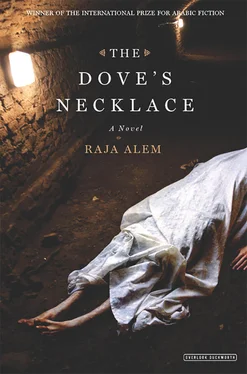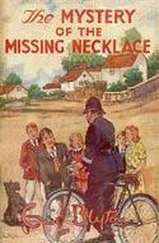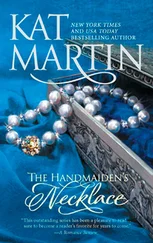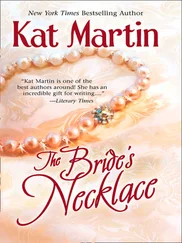Yusuf pressed his head to the marble floor, listening for the conspiratorial female voices in the courtyard of those childhood Fridays.
Directly after Friday afternoon prayers, Halima would go over to the same stone slab to the right of the Well of Zamzam, spread out a rug, and take her seat at center stage. The black abayas multiplied around them as women with their little ones spread out brightly colored rugs. Mopping the perspiration from their temples, they sipped tea from tiny gold-rimmed cups and devoured roasted almonds and watermelon seeds. They played their roles masterfully. Each circle of abayas was its own stage in which the husband played the starring role in a boisterous drama seasoned with ennui.
“Don’t worry, Wadoud. Count out four thousand prayers on your prayer beads over water and then give it to him to drink. That’ll have a troublesome lover wrapped around your little finger in no time …” This tried and true advice was punctuated by the disconsolate sobs of a woman who’d been abandoned, bursting into tears at stage right; to the left a mother prostrated twice before God, pleading to join her young son, to whose green funeral procession, headed for al-Malah Cemetery, she had just bid farewell.
All around them women sent cries of supplication to God, begging Him to send down angels who would alight upon their amulets and the clouds of incense that clung to the Sanctuary’s colonnades.
Hungrily, Yusuf submitted his body to the pull of the black stone and pressed his face into the worn-down surface set in a silver surround, seeking the taste of Azza’s lips among the millions that had imprinted their kisses there over the ages. His mother Halima had inscribed onto their memories what she’d been told by her grandfather: the stone was “one of the great sapphires of Paradise, over three cubits long, which if tossed into water would float — despite its awesome size! When God most exalted took the covenant from Adam’s descendants, He wrote out their destinies and fed them to the black stone. On Judgment Day, the stone will be resurrected with two eyes, a tongue, and lips, to testify to the loyalty of believers and denounce the heresies of infidels.” Azza would always take her time kissing the stone, by way of some secret agreement with the soldier who stood guard beside it. Azza’s tongue never tired of licking the stone, and after its blackness began to drip from her fingers, she started to draw. “We used to think she drew with charcoal,” Yusuf thought to himself, “but in reality she uses the black stone, which she sipped up in those lingering kisses.”
“Recite the Surah of the Earthquake from the Quran and blow in their direction. They’ll get off your back then …”
“The Fussilat Surah. If you recite it after evening prayer with the intention of resolving the problems between you, and making the truth known, even your bitterest enemies will be made to come to you, willingly or otherwise, and do right by you.” With hopes of splitting asunder or bringing together, illiterate women and those with enough learning to make out letters exchanged wisdom — both occult and commonsense — while their children listened, awestruck. Yusuf realized that the mystical tokens they shared with one another with the utmost discretion were capable of summoning the angels down from heaven and into a woman’s pocket. He began to understand that a wronged woman could tear open the doors of heaven and cause angels to rain down. These heads wrapped in black, these women prostrating fervently around him, they confirmed his suspicion that a woman’s tears were a dangerous thing, and that to women faith was a dough they baked into bread for food, warmth, and control over their husbands. By feeding her man, she gets her claws into him. He couldn’t stop thinking about the girl who was reciting verses from the Surah of the Jinn to make the future appear before her.
He would pull Azza away and make her chase him through the colonnades where children played in the shade of the columns’ intertwining capitals under the watchful eyes of the affable sanctuary wardens. Sometimes Yusuf’s gaze would stray upward, and he would see the angels coming to life in the tulip-like adornments atop the columns and inside the gilded circlets that embroidered the ceiling with Quranic verses and the Names of God, angels for whom time stands still in the moment of their revelation. In those venerable colonnades, Yusuf came to understand that art and recitation were synonymous with the sacred. The angels would beckon to him, and he’d fly on his long legs, not stopping until he reached what little remained of Mount Marwa, where Azza would finally catch up with him, narrowly avoiding a collision with the girl who rented out scissors to the pilgrims wanting to cut their hair. Yusuf would stand rooted to the ground, absorbed in thought, in front of the great barrel where the hair piled up in layers, hair of all colors and textures, amassed into the form of a vast bird-like creature. It smelled like the very essence of human desire. A cipher that was shorn during the ritual circumambulation and the running between mountains, cut and brushed off of pilgrims’ napes; the Umrah washed away an entire year’s worth of sins. He’d stand there, enraptured, before the barrel of sins and desires.
Now, with the awareness of his exile intensifying around him, Yusuf was seized by a sudden need to unburden himself, not only of his sin-drenched hair, but of the life that weighed so heavily upon his shoulders. Next to the doorway leading to the concourse between the mountains, he knelt and offered his head up to the razor of an Ethiopian adolescent, who denuded it in five strokes, leaving its surface smooth and gleaming with a greenish shine. He stood up feeling light, almost transparent, and allowed his toes to sink deep into the talismans and charms that accumulated in the courtyard of the house of God. Surely one of these contained his salvation from the bruising weight of this shadowy persecution.
Evening prayer was over and night had long since fallen, turning Mecca into a great marble platter overflowing with a neon glow. It was rush hour in the Haram Mosque, with the weary workers coming to find refuge from the tribulations of their day. Wrapped in his ritual ihram, Yusuf walked out of the Sanctuary, stepping over the vast piles of worshippers’ shoes at the King Fahd Gate and crossing the exterior plaza, all beneath the glare of the Vegas-style spotlights trained permanently on the House of God. Yusuf turned around, his back to the shopping mall opposite, and looked at the whiteness of the Mosque, arranging the edge of his ihram so that it covered the side of his face to ward off the glances of curious passersby.
He was waiting for Mu’az, Dawoud the Imam’s son, who was bouncing like a tennis ball when he arrived. He was a bundle of contradictions — a mixture of pious and modern stuffed into a white Chinese-made tracksuit and sneakers, crowned by an unkempt chest-length beard that looked more like a costume accessory than the real thing. He stood there looking around him for a moment; he obviously hadn’t recognized Yusuf.
“Mu’az!” Yusuf hissed, causing him to jump.
“I didn’t recognize you with all the pilgrims here! With your hair completely shaved like that, and that ihram on …”
“I’m so tired, Mu’az. I’m living like a hobo, and the marble floor’s crushing my bones …” After so much time spent by himself, Yusuf’s voice sounded like it was coming from far away. “I’d give my life for a soft bed and a pillow.”
Mu’az gazed at Yusuf’s ghost-like form. “I know somewhere you can stay. Meet me Friday afternoon by the bike shop at the beginning of Mount Hindi …” A clueless look crossed Yusuf’s face for a moment. “You know, the guy we used to call ‘Son of a Hag?’ When he wasn’t watching you used to steal a bike for a ride around the block …” Yusuf nodded, remembering.
Читать дальше












